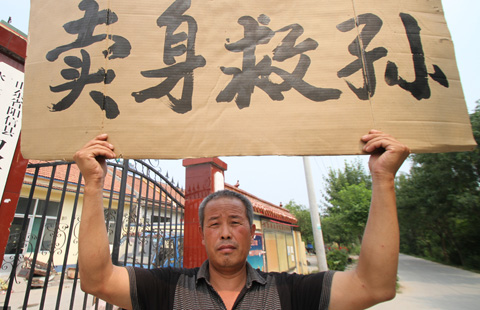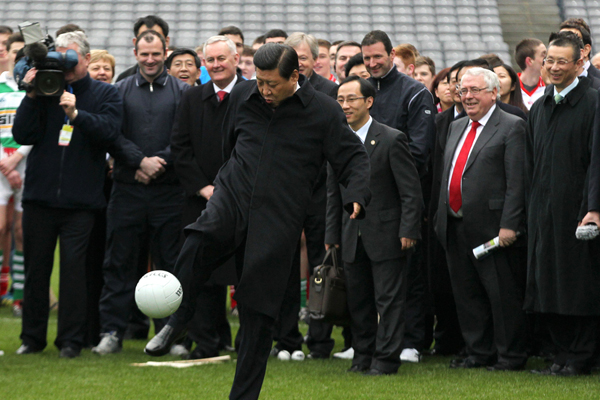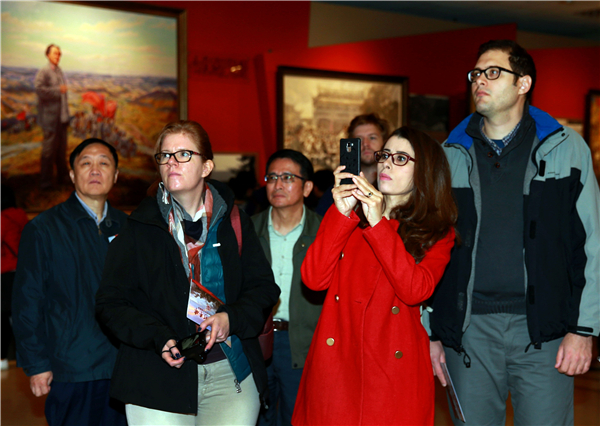Xi, ROK envoy vow to enhance ties
By ZHOU WA (China Daily) Updated: 2013-01-24 04:35Ties between China and the Republic of Korea are expected to get warmer under their new leaderships, as the two countries agreed to deepen relations during a meeting between China's top political leader and the special envoy of the ROK's future leader on Wednesday.
Party chief Xi Jinping emphasized the importance of maintaining the two countries' strategic and cooperative partnership, as he met with Kim Moo-sung, the special envoy sent by ROK president-elect Park Geun-hye.
Park sent her first envoy delegation to China, a deviation from the tradition of her predecessors, who had sent their first round of envoy delegations to the United States, China, Japan and Russia at the same time. The US is usually the first country to meet such an envoy.
Observers said that Park's change shows her attempt to balance the ROK's ties with China and the US, and the balance will help ease tensions on the Korean Peninsula.
Park said in a letter, which she asked Kim to give to Xi, that she attaches great importance to China-ROK ties and hopes to deepen trust, promote cooperation and further develop the strategic and cooperative partnership with China.
Xi said that China also highly values Beijing-Seoul ties and appreciates Park's willingness to deepen the nations' strategic and cooperative partnership.
Xi told Kim that China-ROK ties were at a historical starting point with new, important opportunities. China hopes to embrace these opportunities together with the ROK, maintaining high-level exchanges and cooperation in fields including politics, economics and people-to-people communication.
During her election campaign, Park said that she will improve the partnership between China and the ROK, as well as maintain her country's alliance with the US. While ROK officials told media earlier that Park plans to pay her first state visit to Washington in May, to further consolidate the ROK-US alliance by strengthening bilateral political, economical and military cooperation.
Wang Junsheng, a researcher in Northeast Asia studies at the Chinese Academy of Social Sciences, said Park's decision to send an envoy to China first shows her attempt to find a balance between Seoul's ties with Beijing and with Washington.
Improving ties with China can reduce the ROK's dependence on Washington, Wang said, adding that it will also help reduce the tension on the Korean Peninsula, because China can play a positive role, mediating between the ROK and the Democratic People's Republic of Korea.
"The special envoy emphasized the importance that Park's government attaches to ties with China and guaranteed that the US-ROK alliance will not be directed against China or harm China's interests," said Zhu Feng, a professor on international affairs at Peking University who held talks with members of Park's envoy delegation on Tuesday.
Meanwhile, Xi and Park agreed to make efforts to maintain stability on the Korean Peninsula and keep peace and prosperity in Northeast Asia.
It is in line with the interests of both China and ROK, and China maintains to solve the DPRK nuclear issue and realize the denuclearization through dialogue and consultation, Xi said.
Contact the writer at zhouwa@chinadaily.com.cn
- Xi: China backs stability and growth in Cambodia
- Li vows anew to ease market access
- Xi: China backs stability and growth in Cambodia
- Hopes rise as visit by Duterte set
- Xi stresses CPC leadership of state-owned enterprises
- New rules reduce conviction errors
- Smart technology to assist cancer treatment
- Li unveils measures to boost ties
- Two suspects held for abducting, raping 12-year-old Vietnamese girl
- China to optimize use of villa construction land











